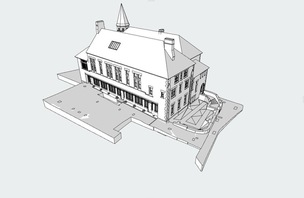A HIDDEN crime wave affecting some of South Yorkshire’s more affluent suburbs has been identified by police, with the victims most likely to be of pension age.
Detectives have established the top ten areas where residents are targeted for financial fraud - with areas in the east Penistone district, Dodworth, Birdwell and Hoyland all targets.
All also have a high percentage of residents aged over 65, an age group which may be more susceptible to telephone or internet scams which can have severe financial consequences.
Police have been able to identify those areas, and profile the ages of typical victims, with information provided by the Action Fraud organisation, where victims can report crimes.
Details are passed to police as part of a system called Operation Signature and since it was invoked, 639 cases have been referred to police, with ten of those identified as being at high risk from criminals.
Now police inspectors responsible for neighbourhood policing are expected to design strategies which suit the circumstances of their own district to tackle the problem.
One tactic is to make new information available to wider family members of potential victims, where they raise concerns that a relative may be at risk.
The force has also formed a new partnership with the Credit Industry Fraud Avoidance Scheme, which works to stop such crimes, which include a lesson plan for schools, to target criminals who operate by impersonating bank staff or other officials and where they succeed in getting the confidential information needed to take over another person’s account.
They are also working on a registration scheme which will involve charity and voluntary agencies, allowing them to flag up people they regard as vulnerable to fraud so they can be ‘flagged’ by the financial institutionss.
South Yorkshire Police’s head of crime, Det Chief Supt James Abdy, said: “We have a number of work streams and action plans that we are working through.
“Through Operation Signature we provide enhanced support to victims on a daily basis. These are not traditional crime areas. It is not as visible. We are looking at communities where the vulnerability comes from people perhaps being wealthier and stepping into the digital world without realising what they are getting into.
“We have to work around education, prevention and making sure vulnerable victims are supported,” he said.
The districts where such crimes happen are those which might have less of a presence from neighbourhood police, due to the lack of traditional, physical, incidents rather than crimes committed electronically or via the internet.
The force is now in the process of recruiting a new ‘protect’ officer, who will be expected to come up with bespoke packages to offer services to individuals who need help.
“There is still much more work to do,” said Chief Supt Abdy.




























